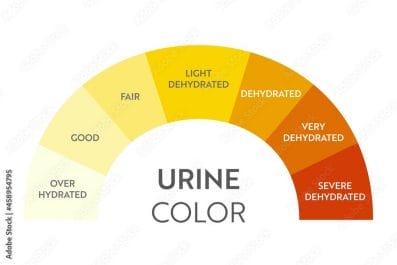Proper hydration helps maintain optimal physical and cognitive performance during exercise. Dehydration can lead to fatigue, decreased coordination, and impaired decision-making, all of which can hinder athletic performance.
Why is it so important to stay hydrated
- Temperature Regulation: Sweating is the body’s primary mechanism for cooling during exercise. Adequate hydration helps maintain normal body temperature and prevent overheating, which is especially important during intense or prolonged exercise sessions.
- Electrolyte Balance: Sweat contains electrolytes like sodium, potassium, and chloride. Hydration supports the maintenance of electrolyte balance in the body, which is essential for muscle function, nerve signaling, and fluid balance. Adding an electrolyte supplement can help with loss of salt. LMNT, Liquid IV, Gatorade or just adding a pinch of table salt will aid in better hydration throughout the day.
- Prevention of Cramps: Dehydration and electrolyte imbalances can increase the risk of muscle cramps during exercise. Proper hydration, along with adequate electrolyte intake, can help prevent cramping and muscle fatigue.
- Injury Prevention: Dehydration can impair muscle function and joint lubrication, increasing the risk of injuries such as strains, sprains, and even heat-related illnesses like heat exhaustion or heatstroke.
- Recovery: Hydration is essential for post-exercise recovery. It helps replenish fluid losses, aids in the delivery of nutrients to muscles, and supports the removal of metabolic waste products from the body.
- Cognitive Function: dehydration can negatively impact cognitive function, including concentration, alertness, and reaction time. Staying properly hydrated can help you, as an athlete, maintain mental sharpness during training and competition.
How much should I be drinking?
- Ideally you want to aim for .5 ounces per pound of body weight. for example if you weigh 120 pounds you would aim for 60 ounces.
- If you are doing strenuous work or workouts add an addition 12 ounces per hour of heavy work. Keep an eye on the color of your urine.
- It should be light in color but not completely clear. See below for a chart of what looks like hydrated vs dehydrated.

Tips for easy hydration:
- Get a designated water bottle, carry it with you everywhere. It’s easy to sip throughout the day than to try to chug 30 ounces of water at a time.
- Drink a glass first thing in the morning. Getting a jump start on it will set the tone for the day.
- If you struggle with plain water, add fruit. Cucumbers, lemons, limes, oranges, mint and berries can all be good additions to flavor your water.
- Set a reminder on your phone. There are even apps you can download that will remind you and track your water intake. That makes it super easy!
Overall, maintaining proper hydration is fundamental for optimizing athletic performance, preventing injuries, and supporting overall health and well-being. Athletes should pay close attention to your fluid intake, especially before, during, and after exercise, to ensure you remain adequately hydrated. Happy H2O drinking!



